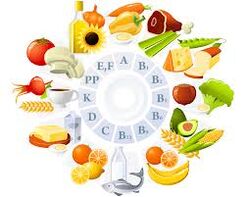
Everyone knows that vitamins are essential for our bodies, but few realize that these substances are necessary for the normal functioning of the brain. Furthermore, in order to maintain memory and thinking, certain groups of vitamins are required, which will be discussed below.
The most important B vitamins for memory
The B vitamins that are most important to the nervous system. We can say that the representation of this group has the greatest influence on a person's memory and thinking. They support the functioning of nerve cells, while preventing premature aging, protecting the brain from overload and stress. Low content or complete lack of vitamin B leads to serious nervous system disorders, impaired memory and intelligence of a person.
This group of vitamins includes the most important vitamins for the brain - B1, B2, B3, B5, B6, B9, B12.
Thiamine - Vitamin B1
Thiamine - vitamin B1, known as the "vitamin of the mind", it is he who has the greatest impact on mental abilities and memory. With its deficiency, thoughts begin to disturb and memory deteriorates. Vitamin B1 directly protects the nervous system and is involved in the supply of glucose to the brain.
With a complete diet, a person is not deficient in this vitamin, as it is contained in a large number of products: oats and buckwheat (abundant in cereal hulls and hulls), bran, peas, nuts, carrots, turnips, beans, potatoes, spinach - are suppliers of thiamine.

It is well absorbed, but also quickly and decomposed, especially under the influence of alcohol, nicotine, sugar, tannins in tea.
Lack of vitamin B1 causes symptoms:
- amnesia;
- muscle weakness;
- high physical and mental fatigue;
- impaired coordination and gait;
- numbness of the limbs;
- irritated without reason;
- depressed mood;
- tears and anxiety;
- sleep disturbance.
In some severe cases, polyneuritis, paralysis and quadriplegia may occur. The function of the cardiovascular system is also impaired, changes in the gastrointestinal tract (dyspepsia, constipation, nausea) can be observed.
Riboflavin - Vitamin B2
Vitamin B2 - riboflavin is an "energy vitamin", a substance that accelerates energy and metabolism in our body, including speeding up nerve processes in the brain, involved in total processes. nerve cell assembly and neurotransmitter activity (biologically active substances through which nerve impulses transmit in nerve cells). With its deficiency, playing sports is more about fatigue than strenuous activity. Vitamin B2 is well tolerated to high temperatures, but rapidly decomposes under light.
Riboflavin is supplied by meat and dairy products. These are liver, kidney, egg, dairy products, yeast, tomatoes, cabbage, rose hip.
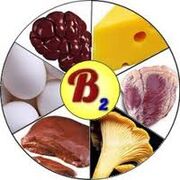
Vitamin B2 deficiency leads to:
- headache;
- reduces the speed of mental processes;
- is sleepy;
- anorexia;
- lose weight; Weakness of
- .
In addition, skin changes appear - ulcers and cracks at the corners of the mouth (cheilitis), dermatitis of the chest and face; visual disturbances - photophobia, watery eyes caused by inflammation of the cornea and mucous membranes of the eyes; The synthesis of adrenal hormones is interrupted.
Nicotinic acid - vitamin B3 or PP
Nicotinic acid (nicotinamide, niacin) - vitamin B3 - can be called the "vitamin of calm". Vitamins participate in the synthesis of enzymes and help get energy from food, lack of it, the body will be tired, depressed, depressed, sleepless. In addition, nicotinamide is directly involved in the biosynthesis of hormones (estrogen, progesterone, cortisol, testosterone, insulin and others).
The overwhelming amount of vitamin B3 is found in animal products: liver, eggs, kidneys, lean meats; To a lesser extent vegetable products - asparagus, parsley, carrots, garlic, green beans, pepper.
If it's not in food, pellagra will grow. The main symptoms of this condition are diarrhea (diarrhea), dermatitis (inflammation on the surface of the exposed skin) and dementia (acquired dementia).
Pantothenic Acid - Vitamin B5
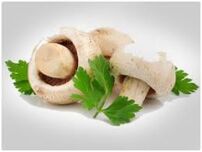
Vitamin B5 - Pantothenic Acid - This vitamin is found in many foods. This vitamin is involved in fat metabolism, conduction of nerve impulses and also activates skin regeneration mechanisms. It is believed that a person cannot be deficient in this vitamin.
But since more than half of the pantothenic acid is destroyed during storage and cooking, the following symptoms may appear:
- numbness of the limbs;
- memory impairment;
- sleep disturbance;
- headache;
- paresthesia (tingling) in hands and feet;
- myalgia.
To make up for a vitamin B5 deficiency, you need to include a variety of foods in your diet: meat, sprouted grains, hazelnuts, offal, yeast. Significant amounts are found in legumes, fresh vegetables, champignons, and green tea.
Pyridoxine - Vitamin B6
Vitamin B6 - pyridoxine - is involved in the synthesis of neurotransmitters, including serotonin. Therefore, its other name is "vitamin antidepressant".
Missing causes the following symptoms:
- is sleepy;
- annoyed;
- inhibits thinking;
- depression;
- feeling anxious.
Vitamin B6 is found in large amounts in yeast, grains, legumes, bananas, meat, fish, potatoes, cabbage, peppers, cherries, and strawberries.
In addition, vitamin B6 affects metabolism, the state of the cardiovascular system, immunity, skin condition, hormone synthesis, hydrochloric acid in the stomach and the absorption of vitamin B12. .
Folic acid - vitamin B9
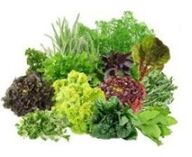
Folic acid - vitamin B9 - participates in the synthesis of neurotransmitters, including dopamine and serotonin, that is, it influences stimulation and inhibition in the nervous systemcenter. In addition, vitamin B9 is involved in protein metabolism, genetic information transfer during fetal development, necessary for the formation of normal blood cells. And in combination with vitamin B5, it slows down the graying of hair.
If missing, symptoms will occur:
- memory impairment;
- are tired;
- feeling anxious;
- anemia;
- insomnia and lethargy.
Folic acid is found in large amounts in bright dark green vegetables (asparagus, spinach, lettuce), lots of it in beans, wheat, butter, and small amounts in the liver. , yolk.
Cyanocobalamin - Vitamin B12
In nature, it is synthesized only by microorganisms, bacteria, and blue-green algae and accumulates mainly in the liver and kidneys of animals. Neither plants nor animals synthesize it. This "red vitamin" is found in animal products: fish, liver, kidney, heart, shellfish, it is also in seaweed, soybeans. Vitamin B12 helps our bodies transition from awake to a "sleep" mode to normalize mental processes, shifting short-term memory to long-term memory.
Lack of cyanocobalamin leads to:
- chronic fatigue;
- confused consciousness; illusion
- ;
- tinnitus;
- annoyed;
- dizziness;
- is sleepy;
- dementia;
- vision impairment;
- dementia;
- depression.
Besides the B vitamins, there are other vitamins for memory and thinking.
Ascorbic acid - vitamin C
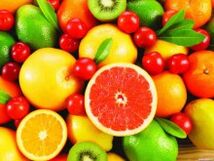
Ascorbic acid is a very powerful antioxidant and protects the body's cells from oxidation. Essential for the maintenance of neurotransmitters in the brain
Vitamin C is not synthesized in the body, it is found in food: rose hip, black currant, sea buckthorn, parsley, sweet red pepper, citrus fruit, scallion, cabbage, horseradish, stinging nettle, from animal products that are only found in the liver.
Tocopherol acetate - vitamin E
This fat-soluble vitamin, above all else, is an excellent antioxidant that helps to remove toxins and free radicals from brain tissue. It is included in the lipid composition of cell membranes. Diets high in foods containing vitamin E help protect the body from heart attacks and atherosclerosis, thereby preventing the development of dementia.
For this, unrefined oils (olives, soybeans, corn), as well as chickpeas, wheat germ and rye, beans, green lettuce, lentils and oats must be included. diet.
Calciferol - Vitamin D
Enter the body with food and is synthesized in the skin under the action of ultraviolet rays. Calciferol is the "main conductor" of calcium metabolism in the body. In addition to its important effects on bone and tooth formation, cell growth and development, vitamin D is required for the correct transmission of nerve impulses and muscle contraction.
Found in large quantities in animal products: avocado, fatty fish (herring, tuna, salmon, mackerel), fish oil, liver, egg yolks.
Bioflavonoids - Vitamin P

The main effect of vitamin P is to reduce capillary permeability and fragility. Together with ascorbic acid, it protects the body from oxidative damage. This prevents bleeding in the brain. Rich in vitamin P citrus fruits, rose hip, blackberries, green tea, apples.
In addition to a well-balanced diet, using vitamins, we must not forget other ways to prevent dementia. This is the only way to achieve a good memory, be active and optimistic in old age.







































































